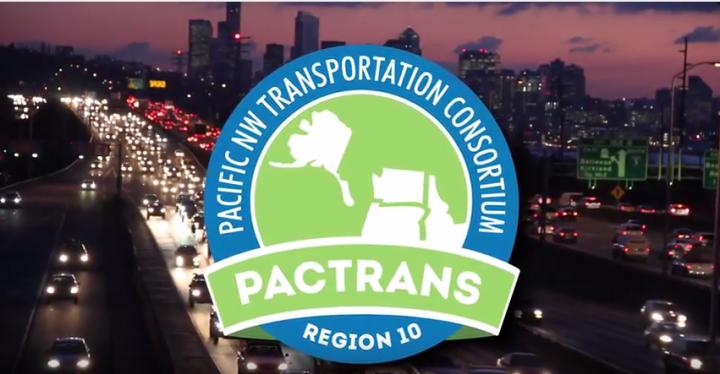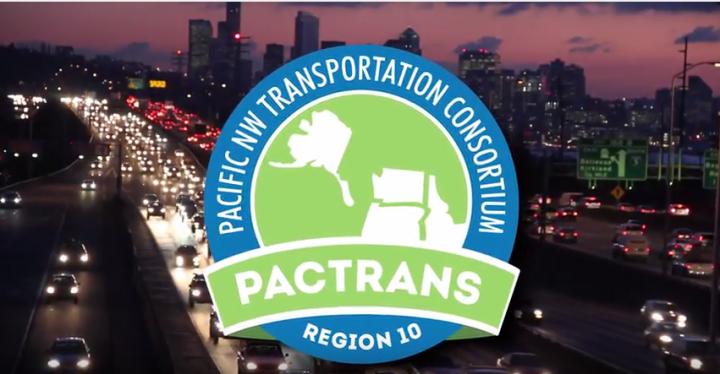
Credit: PacTrans
The U.S. Department of Transportation has awarded approximately $14 million over five years to a multi-university, regional transportation center led by the University of Washington to fund research aimed at improving the mobility of people and goods across the Pacific Northwest.
The competitive funding, which local and regional agencies and companies will match for an expected total of $28 million, advances the work of the Pacific Northwest Transportation Consortium, or PacTrans. It's one of 10 regional University Transportation Centers across the U.S. and represents Washington, Oregon, Idaho and Alaska.
The new grant will expand PacTrans' focus, which previously included data-driven solutions for transportation safety and sustainability, to address all aspects of the region's diverse mobility challenges. That will include everything from alleviating traffic congestion to improving transit accessibility for people with disabilities, improving the reliability of trip-planning tools and expanding rural transportation options.
Other university partners include Boise State University, Gonzaga University, Oregon State University, the University of Alaska Fairbanks, University of Idaho and Washington State University.
"This exciting new grant will allow us to address broader mobility challenges, of which our region certainly has many," said PacTrans director Yinhai Wang, a UW professor of civil and environmental engineering.
"We're seeing rapid population growth in both Portland and Seattle, but we also have the very rural areas like Alaska, with very few people living in a vast landscape. So the question is: How can we offer transportation mobility to people in very different living environments?" Wang said.
The federal program's funding commitment is five years, much longer than the previous two UTC awards, providing valuable stability and opportunity. The universities may also partner with private companies and other stakeholders with economic and social interests in improving the reliability and efficiency with which people and goods move around the region. The proposal had strong support from members of the Congressional delegations across the involved states.
"Transportation mobility is one of the great challenges facing Washington state as we seek to remain competitive now and in the future," said Sen. Patty Murray. "This funding will support important advances that will benefit our local communities and the nation as a whole."
Potential research topics include expanding the use of wireless sensors to collect data and connect traffic systems, integrating self-driving vehicles into traffic operations, exploring transit deserts across the region, strategic freight planning and car-sharing for elderly communities.
"When it comes to transportation problems, I have found that most folks want facts and data to guide decision-making," said Rep. Rick Larsen, a senior member of the U.S. House Committee on Transportation and Infrastructure. "That is why this grant is important – it will help the UW and its PacTrans partners develop smarter transportation solutions that will help drive job growth and keep the economy moving."
Matching funders include transportation industry partners and local transportation agencies, including the four states' transportation departments and the City of Seattle.
"Considering the transportation challenges facing America, our country needs this innovative research being done by these universities to help speed up freight movement and reduce congestion," said Sen. Maria Cantwell.
###
For more information, contact Wang at [email protected].
Media Contact
Jennifer Langston
[email protected]
206-430-2580
@UW
http://www.washington.edu/news/
############
Story Source: Materials provided by Scienmag





